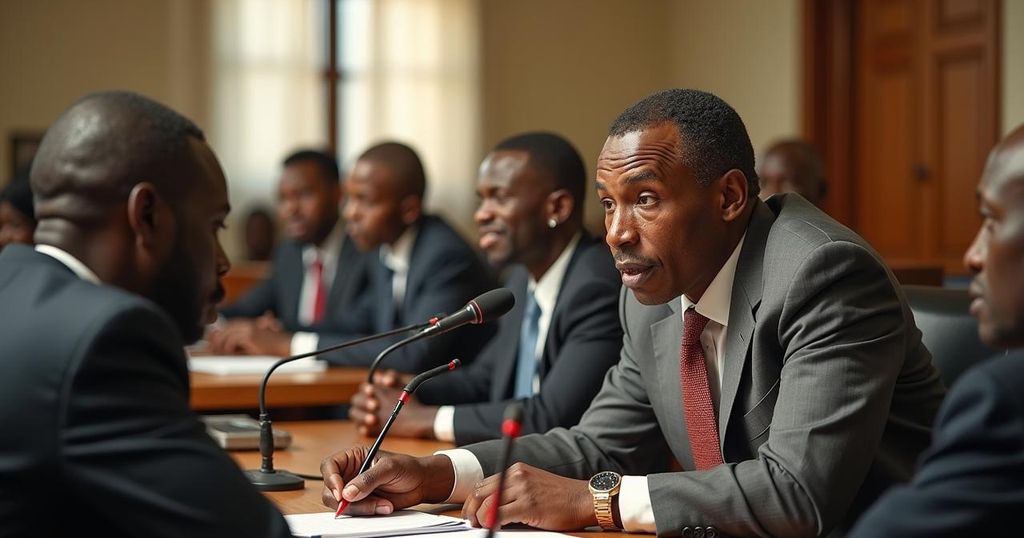South Sudan is initiating the establishment of a Hybrid Court to prosecute war crimes since the 2013 civil war, following the passage of two key bills meant to support transitional justice. Despite international support and funding, resistance from the political leadership poses a significant challenge, raising concerns about effective implementation and the potential for unrest. Activists emphasize the necessity of accountability for conflict-related atrocities, as millions continue to suffer the war’s aftermath.
South Sudan is poised to establish a Hybrid Court, aimed at prosecuting individuals responsible for war crimes and crimes against humanity committed since the outbreak of civil conflict in December 2013. This development follows the passage of two significant bills by the Transitional National Legislative Assembly: the Commission for Truth, Reconciliation and Healing Bill 2024 and the Compensation and Reparation Authority Bill 2024. These bills mark a critical step in the country’s ongoing quest for transitional justice. Despite significant interest and funding support from key international donors such as the Troika—comprising the United States, the United Kingdom, and Norway—the country’s political leadership has expressed reservations regarding the implementation of transitional justice initiatives, fearing that these might reignite past grievances. The Hybrid Court was part of the Revitalised Agreement on the Resolution of the Conflict in the Republic of South Sudan (R-ARCSS) signed in 2018, which, while aiming to address issues of truth and justice, has met with resistance among some signatories, including the coalition government formed thereafter. In discussing the goals of the newly passed legislation, Bona Deng Lawrence, the chairperson of the Standing Specialized Committee on Peace and Reconciliation, emphasized that these measures are intended to confront the conflict’s legacy, deliver justice, and provide reparations to victims while also facilitating psychological support for both victims and offenders. Noteworthy is the complex backdrop against which the civil war was ignited, marked by a power struggle between President Salva Kiir and his then-deputy, Riek Machar. The atrocities committed during this time have led to accusations of war crimes against both parties involved. Natelina Amjima Malek, Deputy Chair of the Information Committee, articulated the legislation’s relevance by highlighting provisions for restoring infrastructure and compensating families affected by the conflicts of 2013 and 2016. Nevertheless, skepticism looms regarding the political commitment to the establishment of the Hybrid Court after nearly a decade of inaction. As noted by civil rights activist Edmund Yakani, the prevailing sentiment within the leadership appears to be contrary to the creation of the Hybrid Court, citing concerns about possible political backlash against the truth and reconciliation processes. Historically, President Kiir and Dr. Machar have publicly called for a reconsideration of the Hybrid Court, suggesting that its formation would hinder national healing. Further complicating the issue, Ezekiel Lol Gatkuoth, a former minister for petroleum, claimed, “There is no proven evidence in any court of law that the leadership are guilty of war crimes. The war crimes are political tools of the West to blackmail Africa.” The toll of the conflict is staggering, with over 400,000 deaths and millions displaced, both internally and as refugees in neighboring nations. Political commentator Akol Miyen Kuol expressed hesitation about the suitability of a Hybrid Court, advocating for traditional reconciliation methods as a more appropriate approach to addressing the war crimes committed in South Sudan at this time.
The Hybrid Court in South Sudan aims to address significant violations of human rights and the legacy of the civil war which began in 2013. This court is part of a broader framework of transitional justice established under the R-ARCSS, a peace deal endorsed to resolve an ongoing conflict rooted in political power struggles. The establishment of the court has faced numerous obstacles, including reluctance from key politicians due to fears of aggravating existing divisions. Activists and international stakeholders emphasize the need for justice and reparations for victims, yet face a challenging political landscape marked by denial and resistance from leadership.
In conclusion, South Sudan’s current endeavor to establish a Hybrid Court represents a significant milestone in its journey towards achieving transitional justice for war crimes committed during its civil conflict. Despite legislative advancements, the future of the court remains uncertain due to substantial political opposition and concerns about potential ramifications for national healing. The path forward underscores the complex interplay between the need for accountability and the political dynamics that have historically impeded progress.
Original Source: www.theeastafrican.co.ke







